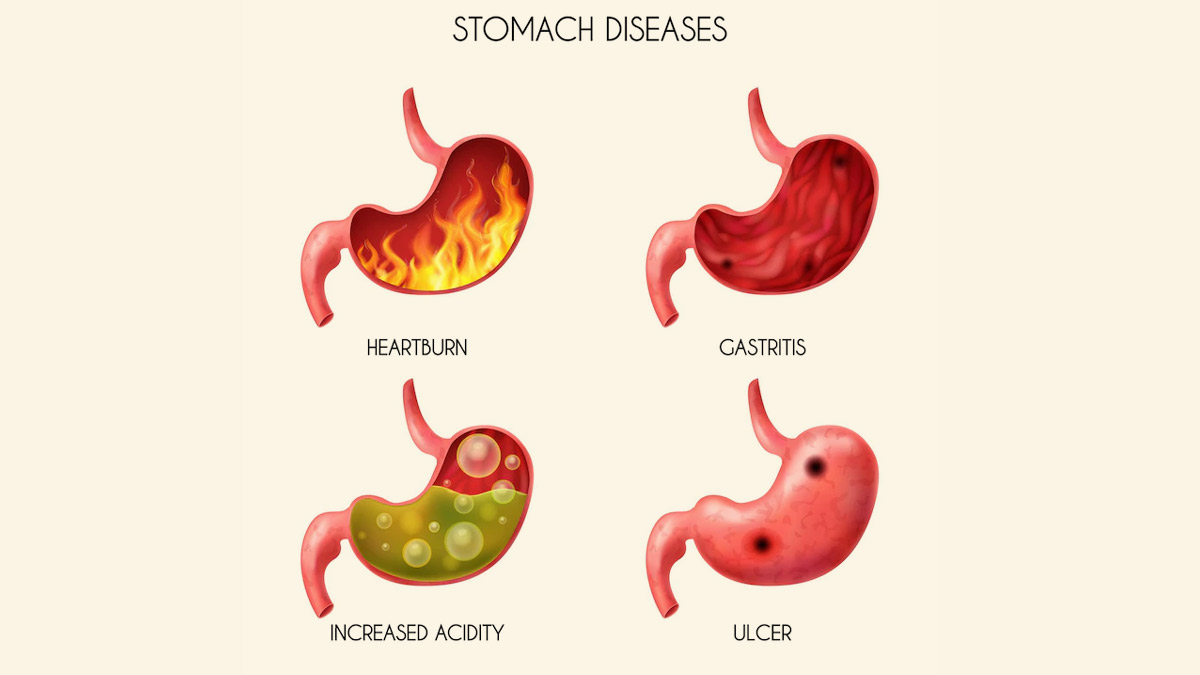
Gastric issues, such as indigestion, bloating, and acidity, are common discomforts that can disrupt our daily lives. Ayurveda, the ancient Indian system of medicine, offers holistic approaches to maintain digestive health naturally.
“Bloating is classified as a Vata disease (Vatavyadhi) in Ayurveda. It is associated with a weak digestive or metabolic fire. Bloating is caused by a lack of digestive fire and a vitiation of Samana Vata. The second most common cause of severe colic pain is the development of biotoxins, also known as ama,” said Dr Ganesh Chaudhary, Bachelor of Ayurvedic Medicine and Surgery (BAMS), PHC, Darbhanga, Bihar.
Eat Mindfully
Ayurveda emphasises the importance of eating in a relaxed environment, free from distractions. Chew your food thoroughly and savour each bite to aid digestion.
Also read: Can Gastric Conditions Cause Breathlessness? Link Between These Conditions And Tips To Prevent It
Warm Water
Sipping warm water throughout the day can help maintain digestive fire (agni) and promote smoother digestion. Avoid ice-cold beverages, as they can weaken agni.
Herbal Teas
Incorporate digestive herbal teas like ginger, peppermint, and fennel into your routine. These herbs can soothe the stomach and alleviate digestive discomfort.
Triphala
Triphala, a traditional Ayurvedic herbal formula, is known for its digestive benefits. It can help regulate bowel movements and detoxify the digestive tract.
Proper Food Combinations
Ayurveda advises against combining certain foods that can create digestive issues. For example, avoid mixing dairy with sour or acidic foods.
Regular Mealtimes
Establish a consistent eating schedule. Irregular eating habits can disrupt digestion. Try to have your meals at the same times each day.
Spices for Digestion
Spices like cumin, coriander, and turmeric can enhance digestion and reduce bloating. Incorporate them into your cooking or sprinkle them on dishes.
Yoga and Pranayama
Engage in gentle yoga postures and pranayama (breathing exercises) to reduce stress and improve blood circulation, which can benefit digestion.

Practice Abhyanga
Abhyanga, the practice of self-massage with warm oil, can relax the body and aid digestion. Focus on the abdomen in gentle, clockwise motions.
Ayurvedic Supplements
Consult an Ayurvedic practitioner for personalised herbal supplements or remedies to address specific digestive concerns.
Stress Management
Chronic stress can disrupt digestion. Incorporate stress-reduction techniques like meditation and mindfulness into your daily routine.
Detox Periodically
Ayurveda recommends periodic detoxification to eliminate toxins from the body and rejuvenate the digestive system. Consult a professional for guidance.
Incorporating Ayurvedic principles into your lifestyle can help prevent gastric issues and promote overall digestive health. Remember that Ayurveda is a holistic approach that considers not only what you eat but also how you eat, when you eat, and your mental state.
Also read: Epigastric Hernia: Symptoms, Causes, Diagnosis And Treatment
By following these Ayurvedic tips and practices, you can foster harmony within your digestive system, leading to improved well-being and vitality. However, it's essential to consult with an Ayurvedic practitioner for personalised guidance and recommendations tailored to your unique constitution and needs.
How we keep this article up to date:
We work with experts and keep a close eye on the latest in health and wellness. Whenever there is a new research or helpful information, we update our articles with accurate and useful advice.
Current Version